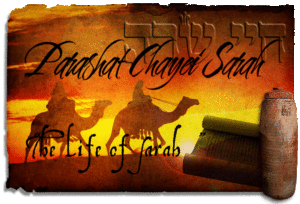 “Who is rich? He who is happy with what he has.” – Pirkei Avot
“Who is rich? He who is happy with what he has.” – Pirkei Avot
At the start of this week’s parasha, Sarah dies and Abraham purchases from the sons of Het the cave of Machpelah for a burial place. The text then tells us:
Now Abraham was old, well on in years, and the Lord had blessed Abraham with everything.
Everything? He just buried his wife and yet we are told that God blessed him with everything?
One commentator clarifies that he was blessed with riches and possessions and honour and longevity, and thus there was nothing in the world that he needed to gain.
Why does the text tell us now that Abraham was blessed with everything now? Because having blessings and recognizing that you are blessed are very different.
In the midst of his grief, Abraham was able to remember the larger purpose to his life and focus on moving forward rather than dwelling on what he lost. He purchases land for a burial place and he enlists his servant to find a wife for Isaac – both tasks work towards the fulfilment of God’s promises of land and progeny.
With each of these projects, Abraham exemplifies a sense of purpose, attention to detail and humility. He insists on paying for the land, despite the offer to give it to him as a gift, ensuring that no later generation could argue that it did not belong to him. He is respectful and deferential to the children of Heth, but also firm and determined. His search for a wife for Isaac is deliberate and resolute. He does not want Isaac to marry a Canaanite girl and thus sends his servant back to his family in Haran to bring a girl back.
But if the woman will not wish to follow you, you shall then be absolved of this oath of mine; only do not return my son to there.
Remembering your blessings – especially when experiencing a loss – is challenging. It’s why we are encouraged to “practice” gratitude as opposed to just “be grateful,” and the best way to teach gratitude to children is to model it. Anyone could see that Abraham had many blessings – what made him unique was that he himself saw how blessed he was.
Anne Frank too was remarkable when she wrote, “I don’t think of all the misery but of the beauty that still remains.”
Questions for Discussion at the Shabbat Table
- What were Abraham’s blessings?
- What blessings do you have in your life?
- How do we show gratitude for these blessings?
- When is it important to remember all the blessings that we have?
- How as a family can we “practice gratitude” regularly?
- What do we hope we’ll gain from practicing gratitude?
Shabbat Shalom.



